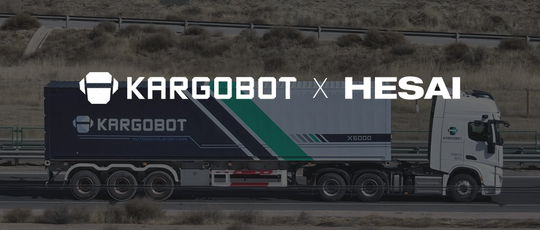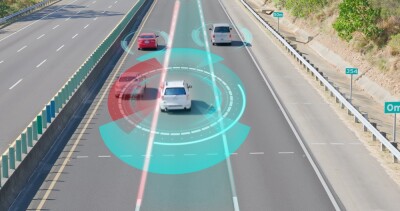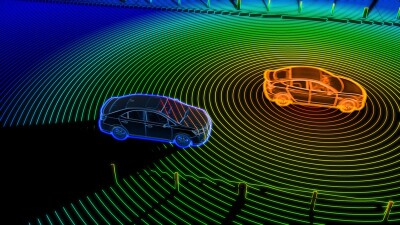Last week, lidar manufacturer and provider Hesai Technology announced a new strategic cooperation agreement with KargoBot, a company in the autonomous trucking space. Under the cooperation agreement, the two companies will jointly promote the application of Hesai’s AT128 automotive-grade, hybrid solid-state lidar for Level Four autonomous trucks.
Per the release of the news, the two companies will work in concert “to implement safer, more intelligent commercial logistics applications.” Last year, KargoBot integrated five AT128 sensors into its autonomous truck to achieve full 360-degree field of view coverage, while also indicating that the sensors are still functioning at zero failure after nearly two years of usage in harsh conditions, a key for any autonomous driving solution.
The AT128 sensor is Hesai’s solution for Advanced Driver Assistance Systems, and as the name suggests it is integrated with 128 lasers. The automotive-grade, hybrid solid-state lidar boasts a 128-degree field of view horizontally (25.4 degrees vertically) with a range of 200 meters, generating over 1.5 million data points per second. Hesai reached a key milestone last year with this sensor, becoming the first automotive lidar company to reach 10,000 units delivered in a month. That mass production is a key for any solution to be implemented into the autonomous driving space, for obvious reasons.
KargoBot, meanwhile, was incubated by Didi, a ride-hailing company in China, and is focused on research and development around Level Four autonomous trucks. Level Four is the second highest level of autonomy in the automotive space, indicating that a vehicle doesn't require human intervention in most scenarios and can shut itself off in case of system failures, but with a human still having the option to manually override. At this point, regulations still don’t allow for this level of autonomy on public roads outside of a few select locations. KargoBot currently has a fleet of 100 autonomous trucks and has started trial operations in China.
The road towards autonomous vehicles has not gone exactly as people have planned, with the mass adoption of these vehicles still years away. Anyone paying attention to the lidar space, though, knows that efforts have not subsided, and many still believe these mass-produced lidar sensors like the AT128 still hold the key towards reaching that ultimate end goal. Furthermore, the trucking space still seems like one of the logical places for autonomous driving to first take hold, along with ride-hailing services. Much of trucking takes place on highways, which don’t contain the same complexities of city driving and at least those legs of a journey could be more easily automated. With China pushing to be one of the global leaders in the autonomous driving space, it’s significant that these two companies are partnering to promote a single solution.
The agreement does have some forward-looking aspects as well. The release of this news ends with “In the future, Hesai will continue to empower KargoBot to iterate its autonomous driving technology solutions, and promote the large-scale implementation of autonomous logistics.”







